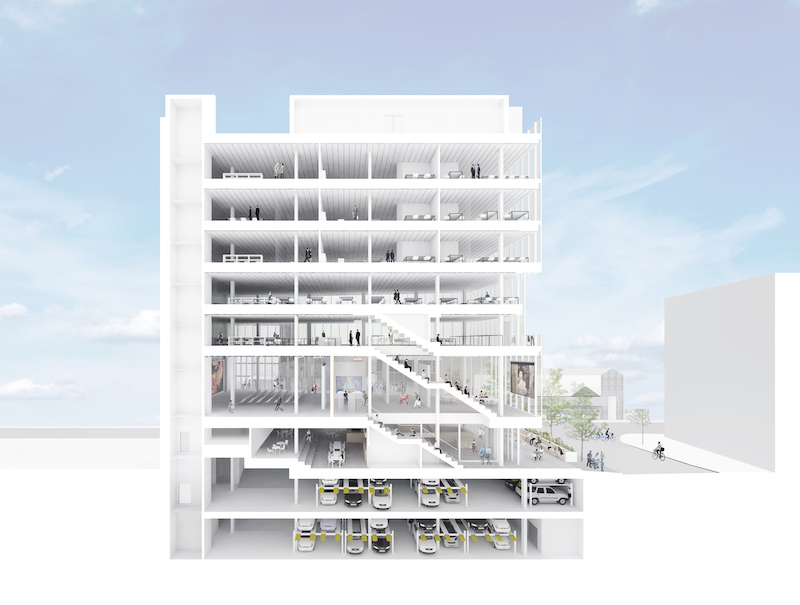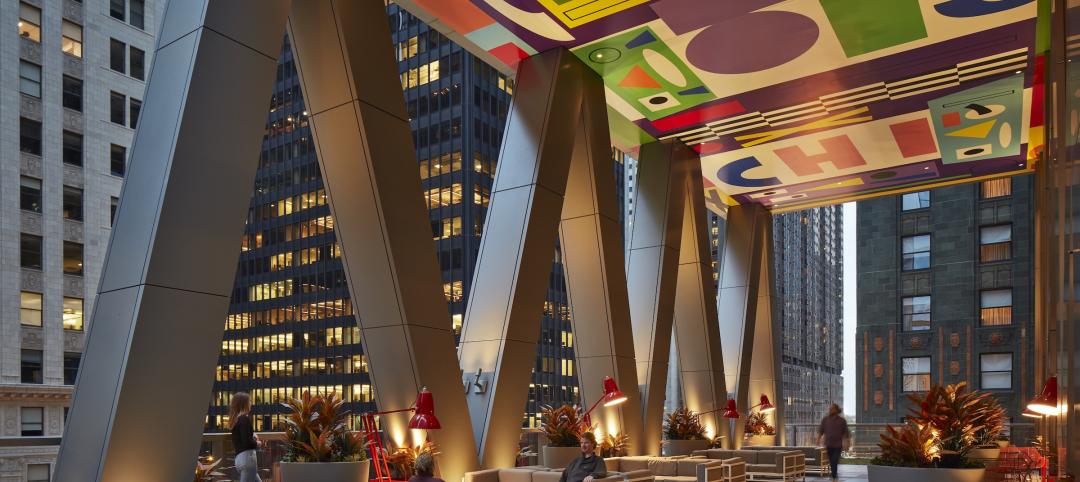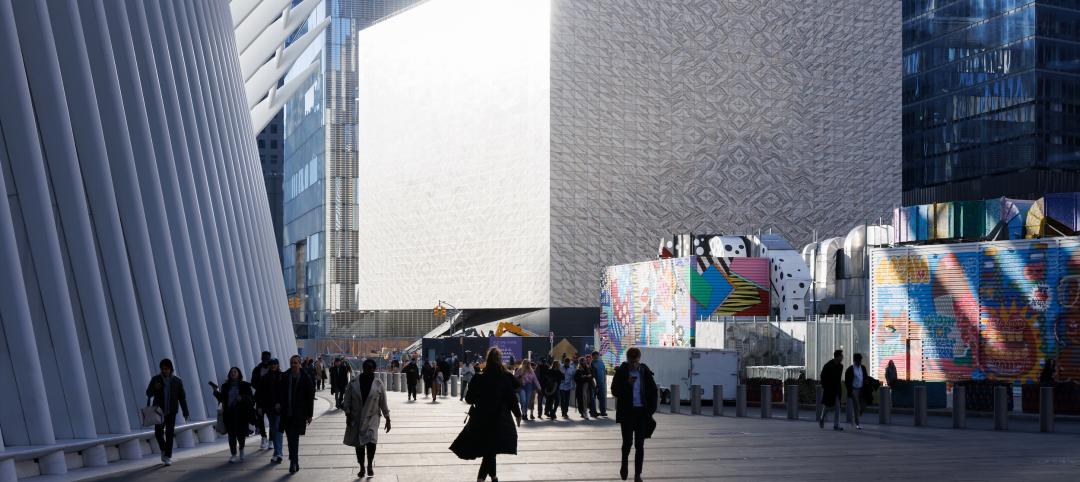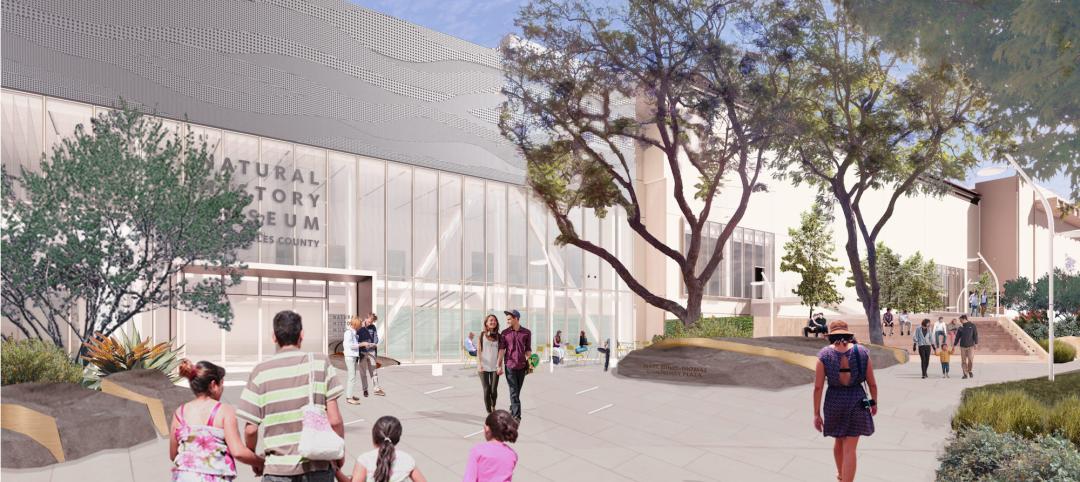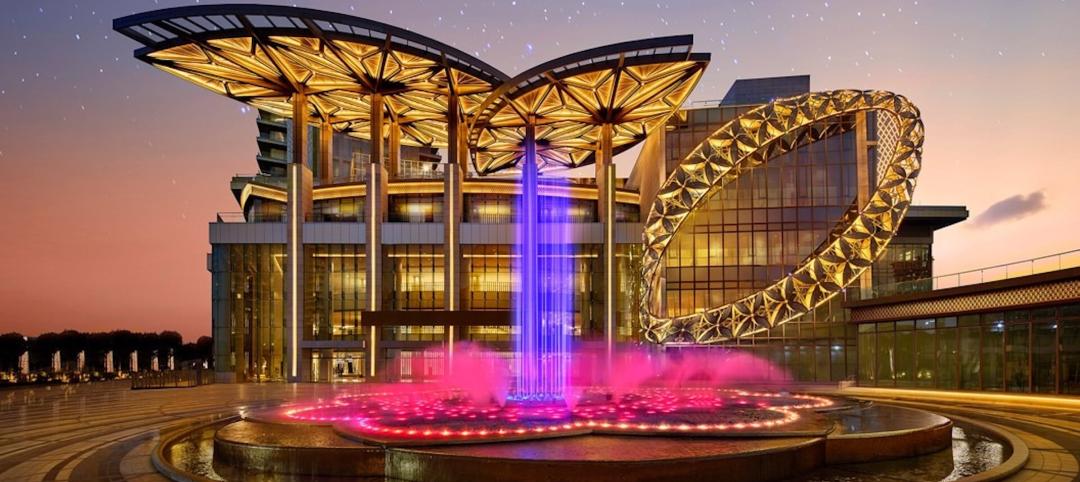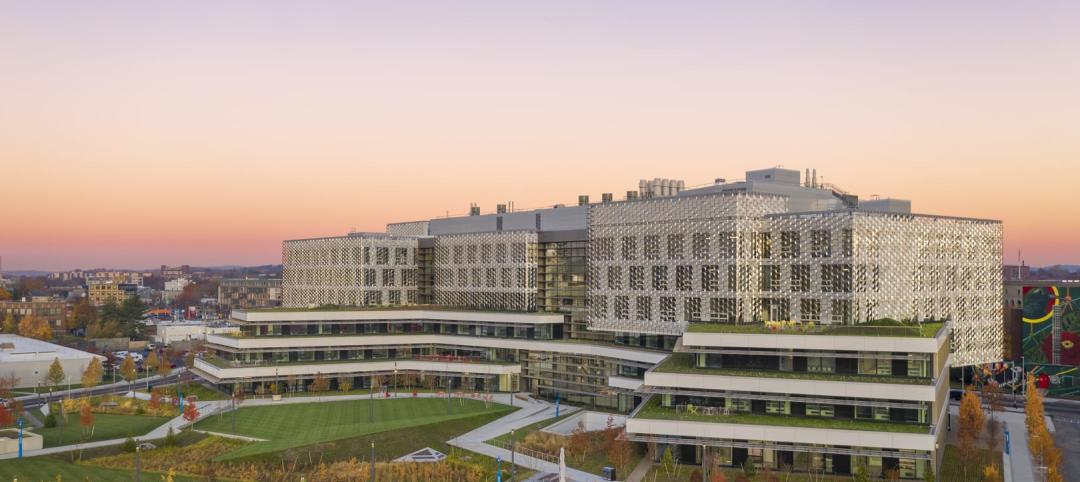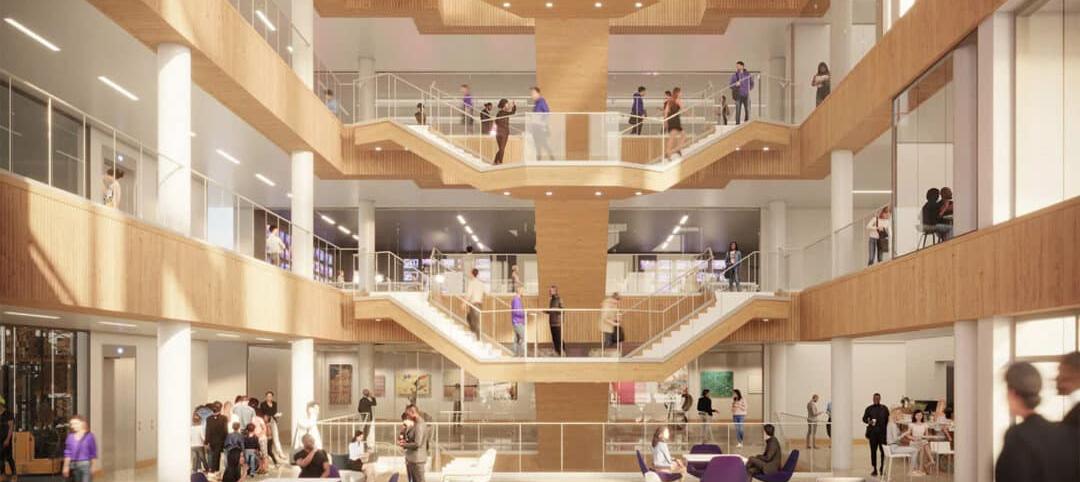Hartford, Conn.-based JCJ Architecture traces its roots to 1936, when the U.S. was just coming out of an economic depression and its unemployment rate was still 14%. In 2021, with the country trying to recover economically from the impact of the coronavirus, and with questions about social inequity entering the public debate as rarely before, JCJ has focused its design work on projects and clients that are committed to social responsibility and advocacy, particularly for underserved or marginalized communities.
The firm that is 100% owned by its 120-plus employees, JCJ has a “long history” of designing buildings for people in need, says Peter Bachmann, a Principal. Over the years, that work has included senior living, public schools, and working with Native American tribes. More recently, a “natural progression” for the firm, says Bachmann, has been to seek design work that benefits immigrants and people with disabilities.
PROJECTS THAT WILL LEND HELP TO MARGINALIZED
Bachmann points to three projects in various stages of development that he says illustrate his firm’s commitment:
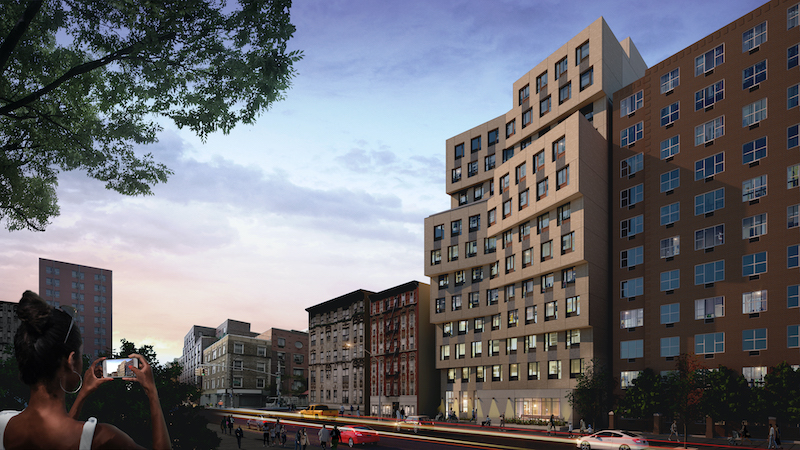 A rendering of the Freedom Village that would provide housing for the physically disabled adults.
A rendering of the Freedom Village that would provide housing for the physically disabled adults.
• JCJ has been working with Barrier Free Living, which provides emergency shelter for victims of domestic violence, to design a “Freedom Village” on the Lower East Side of Manhattan that will provide temporary and supportive housing for adults with significant physical disabilities. The construction documents have been completed for this project, whose construction could get started this summer, Bachmann says.
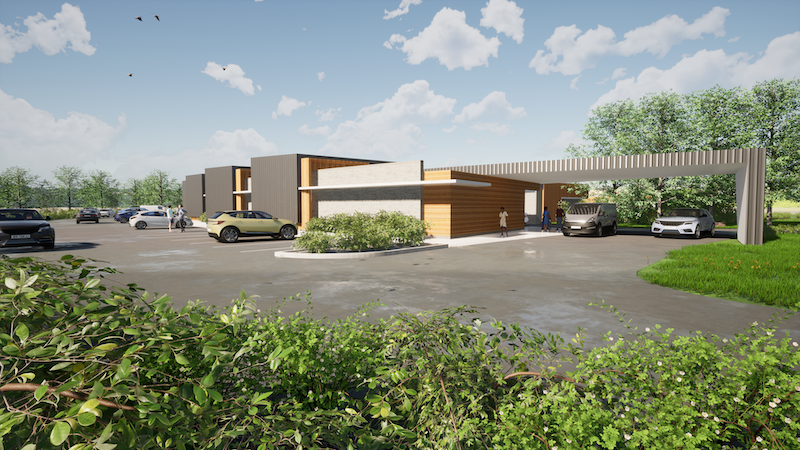 Ohio intends to roll out 10 Adult Advocacy Centers for which JCJ designed the prototype.
Ohio intends to roll out 10 Adult Advocacy Centers for which JCJ designed the prototype.
• The construction documents are also ready for a prototype facility JCJ designed for Adult Advocacy Centers, a disability victim services agency. The resulting building would be the first of its kind to serve adult crime victims with disabilities. The prototype—part of a 10-center rollout in Ohio that’s been on hold because of the COVID 19 outbreak—is composed of five pods, each strategically designed to support different categories of disability: hearing and visual impairments, mental illness, physical mobility, and clients in crisis or with intensive medical needs.
Bachmann spoke of “trauma-informed design” that, in the prototype, accounts for residents’ psychological sensitivity to light, sound, and movement. For example, the single-story building’s windows are above eye level so that residents aren’t startled by people they might see on the street. The design also avoids skylights so that birds flying overhead don’t alarm fragile residents.
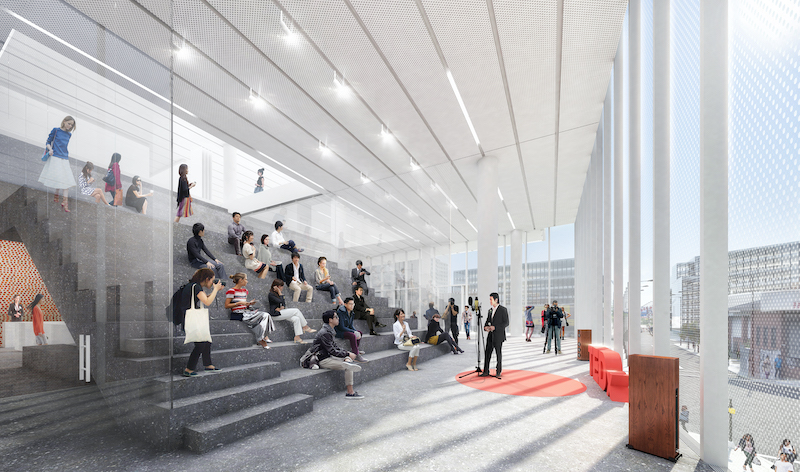 The Center for Community & Entrepreneurship will include a first-floor incubation space.
The Center for Community & Entrepreneurship will include a first-floor incubation space.
• The Asian Americans for Equality has enlisted JCJ to design its Center for Community & Entrepreneurship, a 65,000-sf, four-story building in Flushing, Queens, the New York borough with the city’s largest Asian population. The Center’s first floor will include incubator space for startup businesses and a mini food hall. The upper three floors will provide casual and formal meeting and training rooms. The goal of this building—whose construction docs are completed—is to provide spaces that support individual interaction, community events, retail and office opportunities, and a social services hub.
LOCAL SUPPORT, IN DIFFERENT WAYS
Bachmann says that community involvement has been central to the success of these projects. “We can never presume to know the skin that someone is living in,” he explains. “We don’t just come in and tell clients what to do. We support social change by giving different populations a voice in the design of facilities. We listen and try to ask the right questions.”
JCJ is involved in its communities in other ways, too. It is a supporter of the ACE Mentor program, which educates high school students about AEC careers. Each of the firm’s offices also makes cash donations local charities.
On a personal level, Bachmann says he’s gained “a better understanding” about how design can impact people in need from his 31-year-old daughter Maya, who is intellectually disabled.
Related Stories
Giants 400 | Aug 22, 2023
Top 175 Architecture Firms for 2023
Gensler, HKS, Perkins&Will, Corgan, and Perkins Eastman top the rankings of the nation's largest architecture firms for nonresidential building and multifamily housing work, as reported in Building Design+Construction's 2023 Giants 400 Report.
Performing Arts Centers | Jul 18, 2023
Perelman Performing Arts Center will soon open at Ground Zero
In September, New York City will open a new performing arts center in Lower Manhattan, two decades after the master plan for Ground Zero called for a cultural component there. At a cost of $500 million, including $130 million donated by former mayor Michael R. Bloomberg, the Perelman Performing Arts Center (dubbed PAC NYC) is a 138-foot-tall cube-shaped building that glows at night.
Standards | Jun 26, 2023
New Wi-Fi standard boosts indoor navigation, tracking accuracy in buildings
The recently released Wi-Fi standard, IEEE 802.11az enables more refined and accurate indoor location capabilities. As technology manufacturers incorporate the new standard in various devices, it will enable buildings, including malls, arenas, and stadiums, to provide new wayfinding and tracking features.
Engineers | Jun 14, 2023
The high cost of low maintenance
Walter P Moore’s Javier Balma, PhD, PE, SE, and Webb Wright, PE, identify the primary causes of engineering failures, define proactive versus reactive maintenance, recognize the reasons for deferred maintenance, and identify the financial and safety risks related to deferred maintenance.
Museums | Jun 6, 2023
New wing of Natural History Museums of Los Angeles to be a destination and portal
NHM Commons, a new wing and community hub under construction at The Natural History Museums (NHM) of Los Angeles County, was designed to be both a destination and a portal into the building and to the surrounding grounds.
Performing Arts Centers | Jun 6, 2023
Mumbai, India’s new Nita Mukesh Ambani Cultural Centre has three performing arts venues
In Mumbai, India, the recently completed Nita Mukesh Ambani Cultural Centre (NMACC) will showcase music, theater, and fine arts from India and from across the globe. Atlanta’s TVS Design served as the principal architect and interior designer of both the cultural center and the larger, adjacent Jio World Centre.
Architects | Jun 6, 2023
Taking storytelling to a new level in building design, with Gensler's Bob Weis and Andy Cohen
Bob Weis, formerly the head of Disney Imagineering, was recently hired by Gensler as its Global Immersive Experience Design Leader. He joins the firm's co-CEO Andy Cohen to discuss how Gensler will focus on storytelling to connect people to its projects.
Green | Apr 21, 2023
Top 10 green building projects for 2023
The Harvard University Science and Engineering Complex in Boston and the Westwood Hills Nature Center in St. Louis are among the AIA COTE Top Ten Awards honorees for 2023.
Urban Planning | Apr 12, 2023
Watch: Trends in urban design for 2023, with James Corner Field Operations
Isabel Castilla, a Principal Designer with the landscape architecture firm James Corner Field Operations, discusses recent changes in clients' priorities about urban design, with a focus on her firm's recent projects.
Architects | Apr 6, 2023
Design for belonging: An introduction to inclusive design
The foundation of modern, formalized inclusive design can be traced back to the Americans with Disabilities Act (ADA) in 1990. The movement has developed beyond the simple rules outlined by ADA regulations resulting in features like mothers’ rooms, prayer rooms, and inclusive restrooms.


